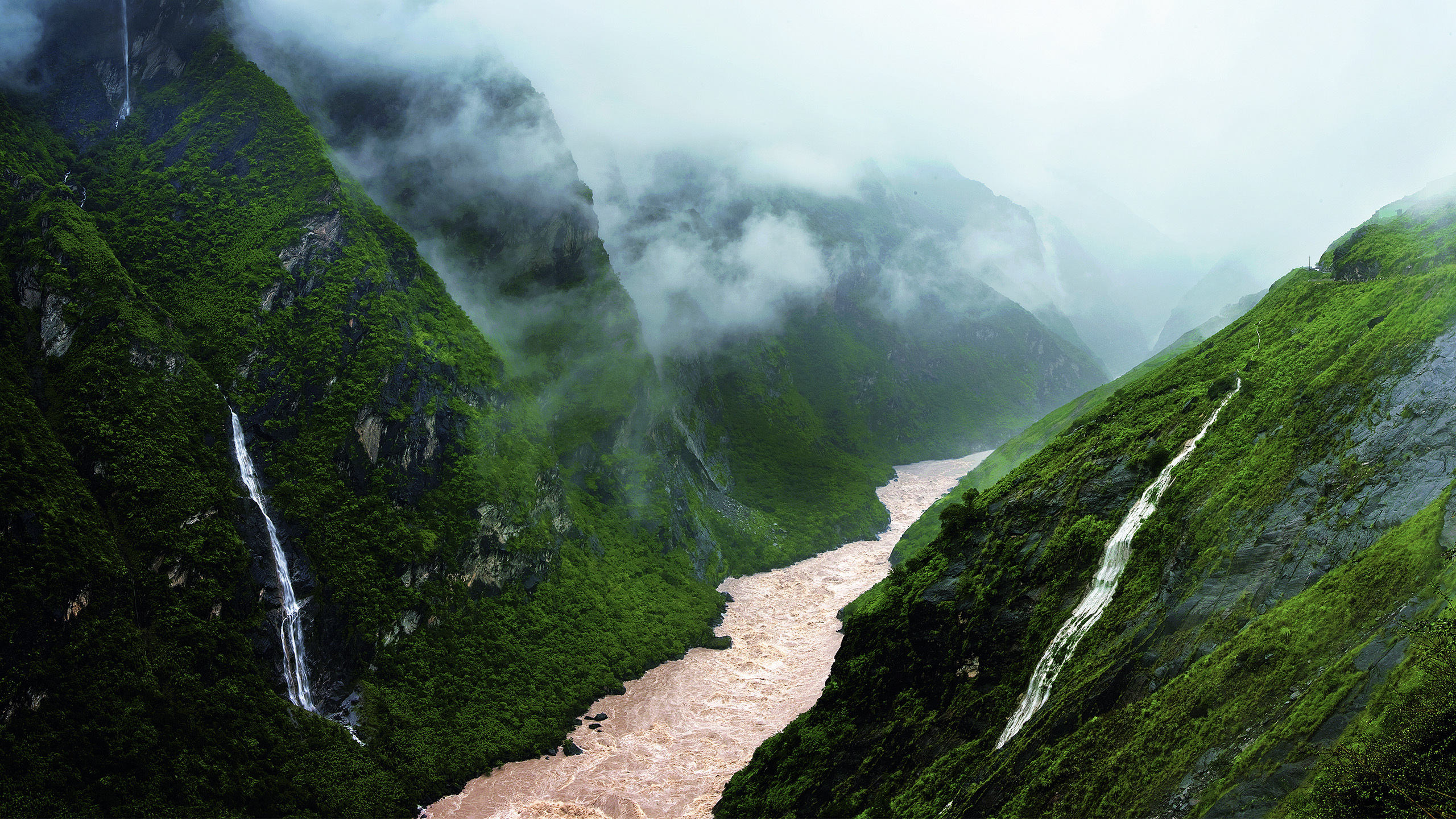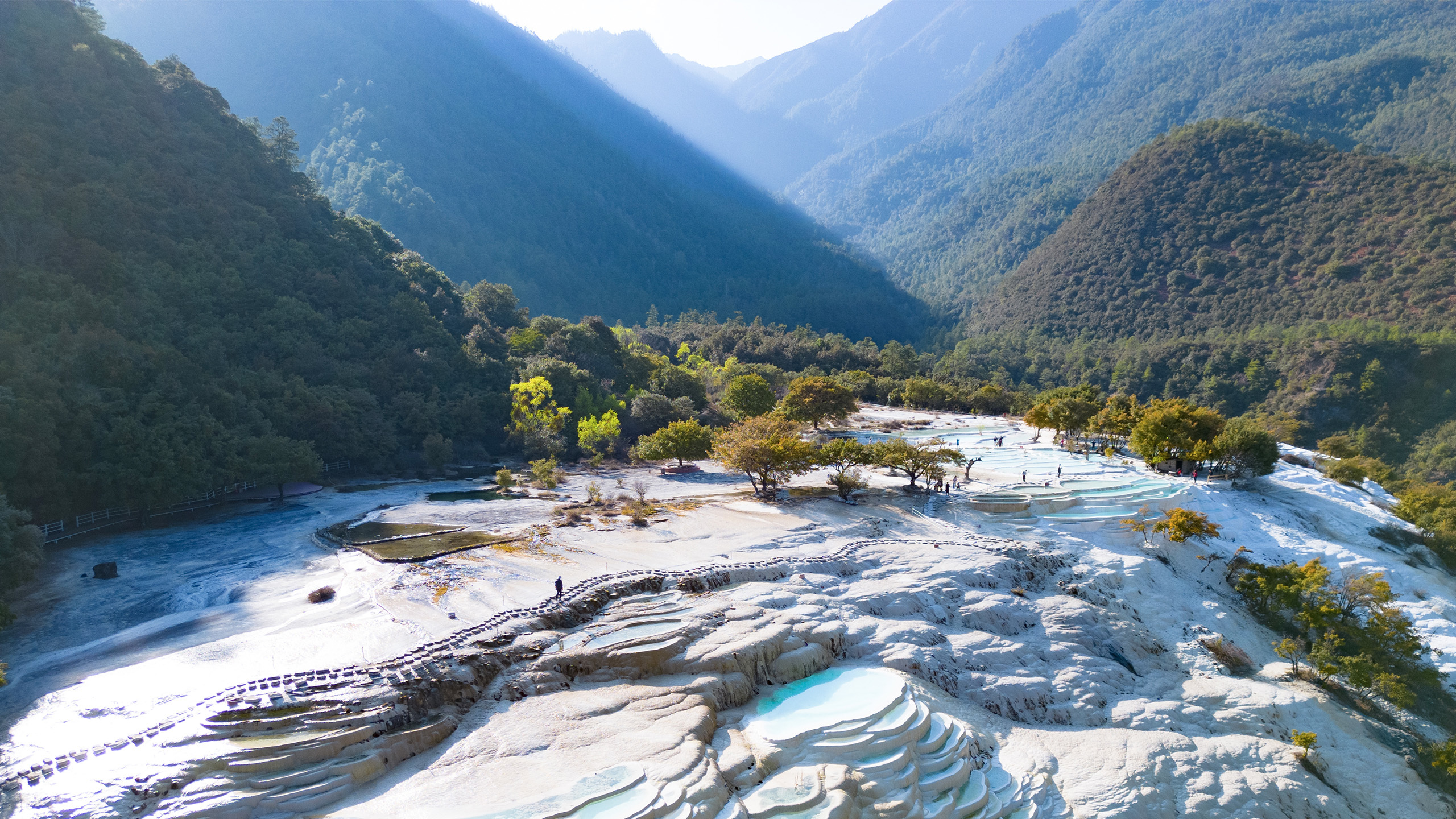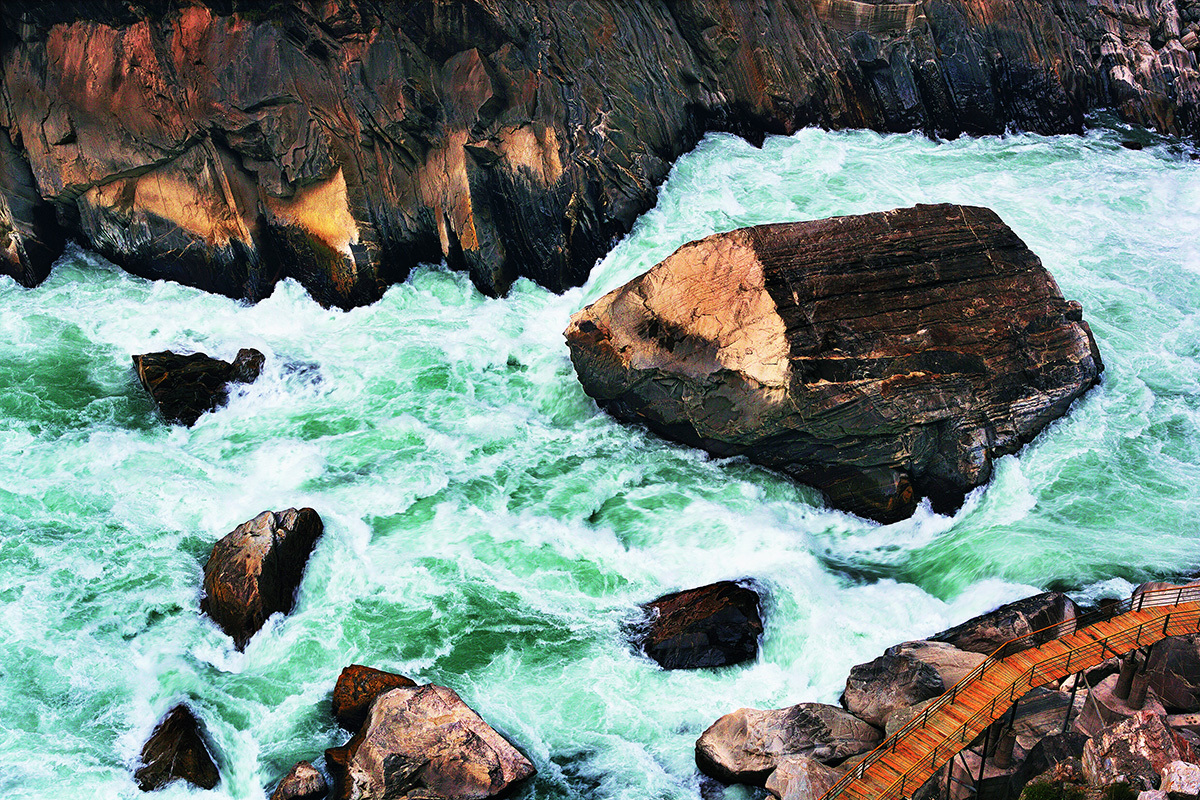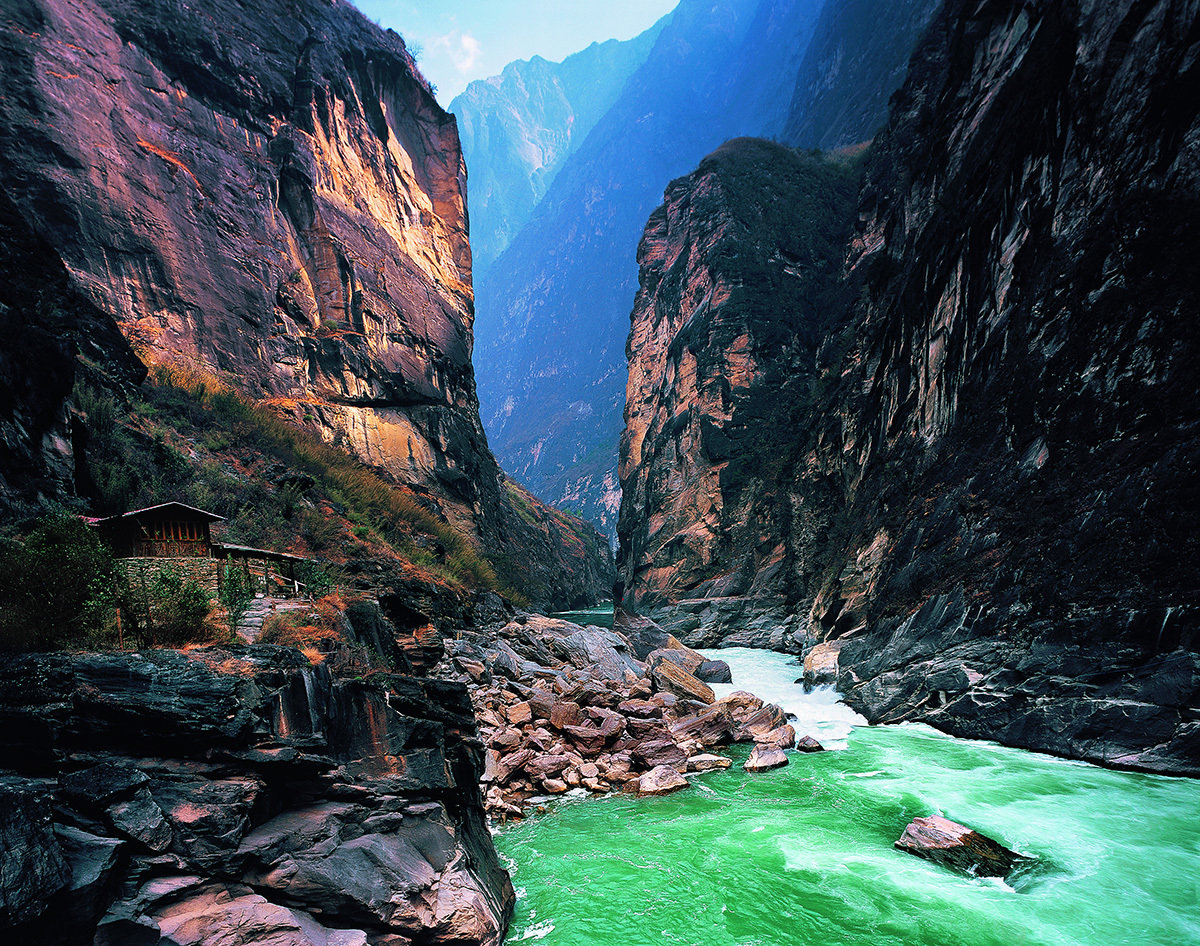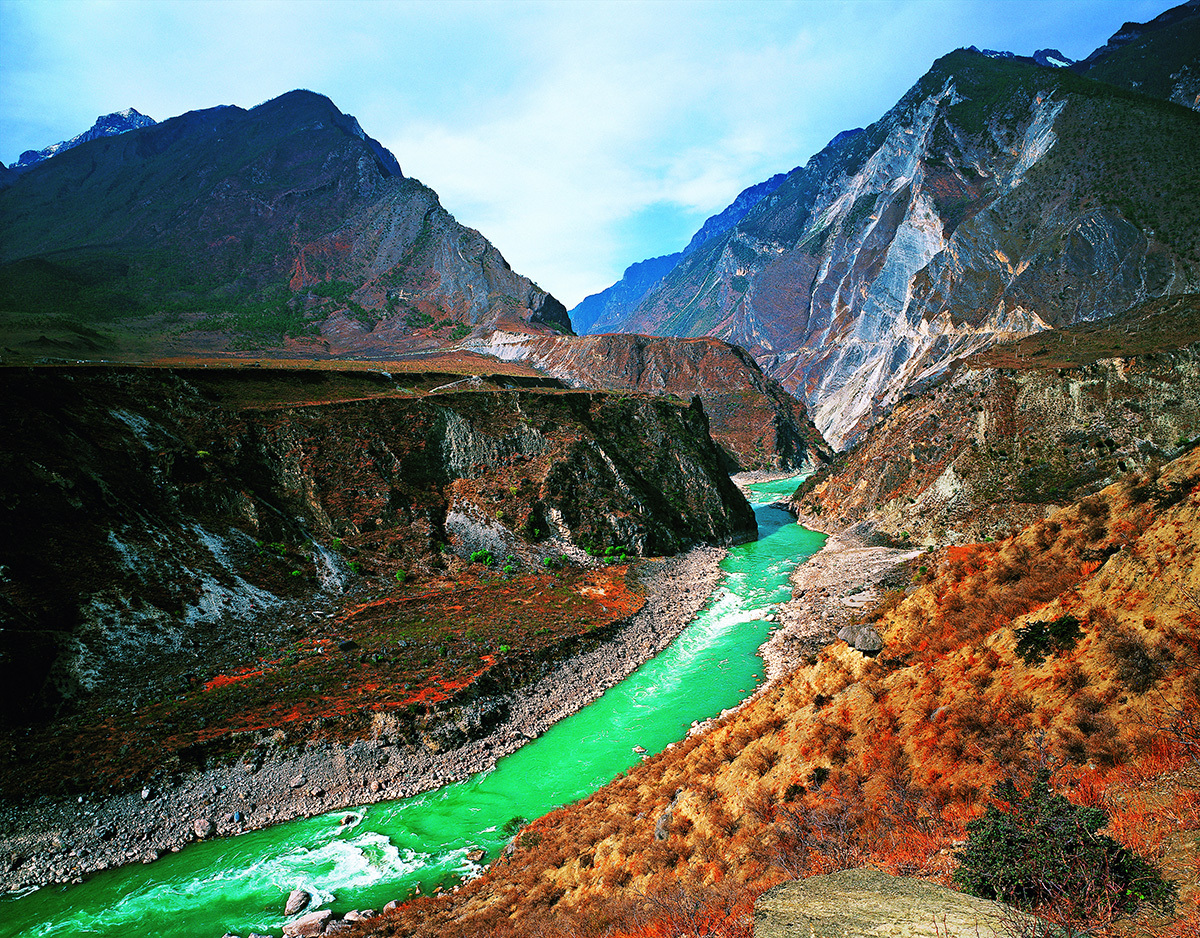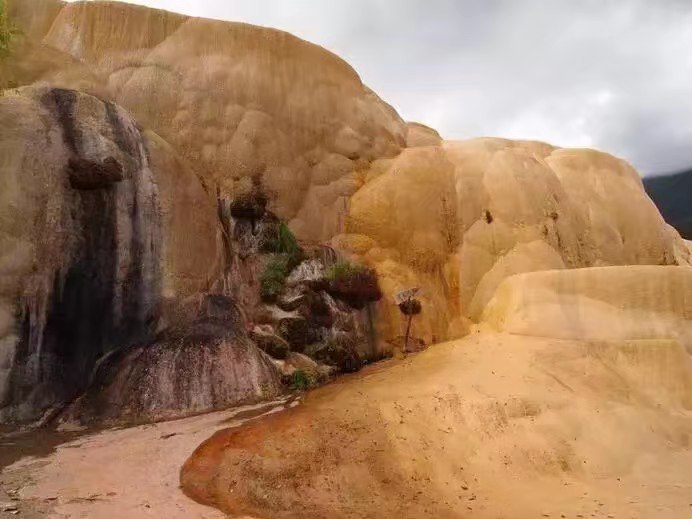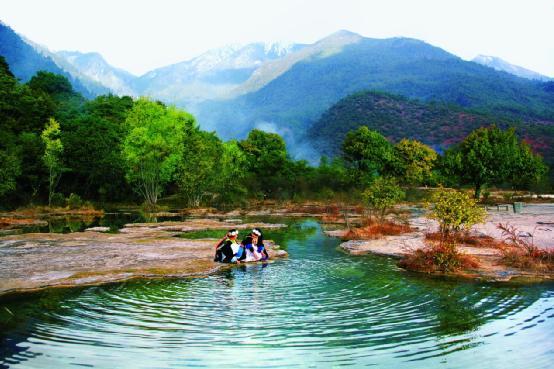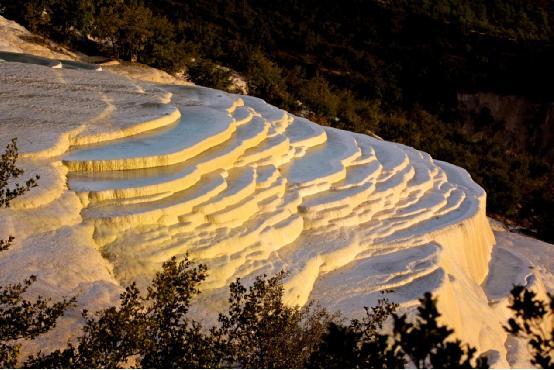About us
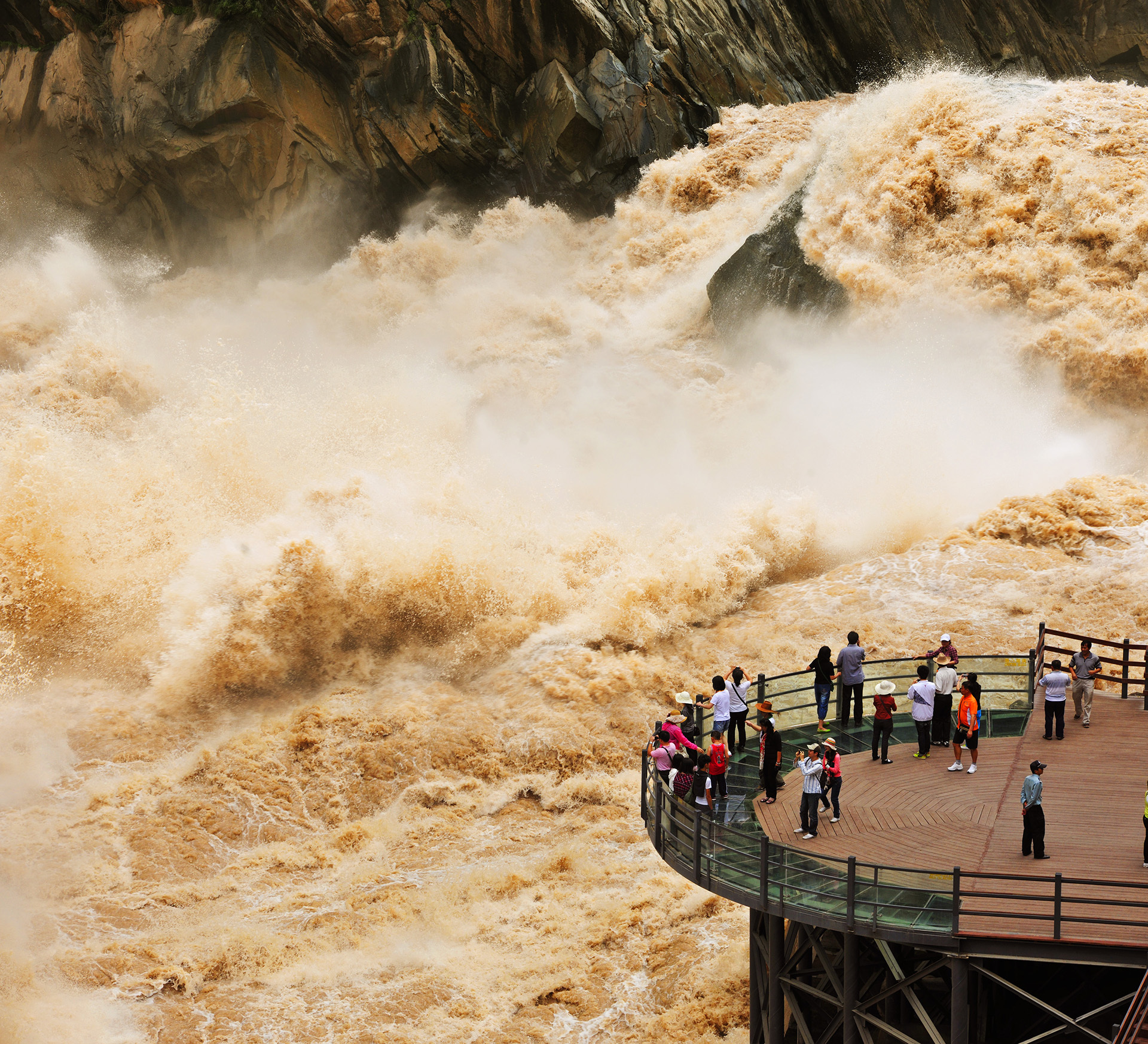
Introduction To Tiger Leaping Gorge Scenic Area
The Jinsha River flows from north to south, all the way down, parallel to the Lancang River and the Nujiang River, so it is called "three parallel rivers". In Lijiang Shigu, "the first Bay of the Yangtze River", Jinsha River turns left and turns all the way east, passing between Yulong Snow Mountain (5596 meters above sea level) and Haba Snow Mountain (5396 meters above sea level), forming a huge canyon, which is the world-famous Tiger Leaping Gorge.
Altitude difference
Full length of the canyon
Average flow
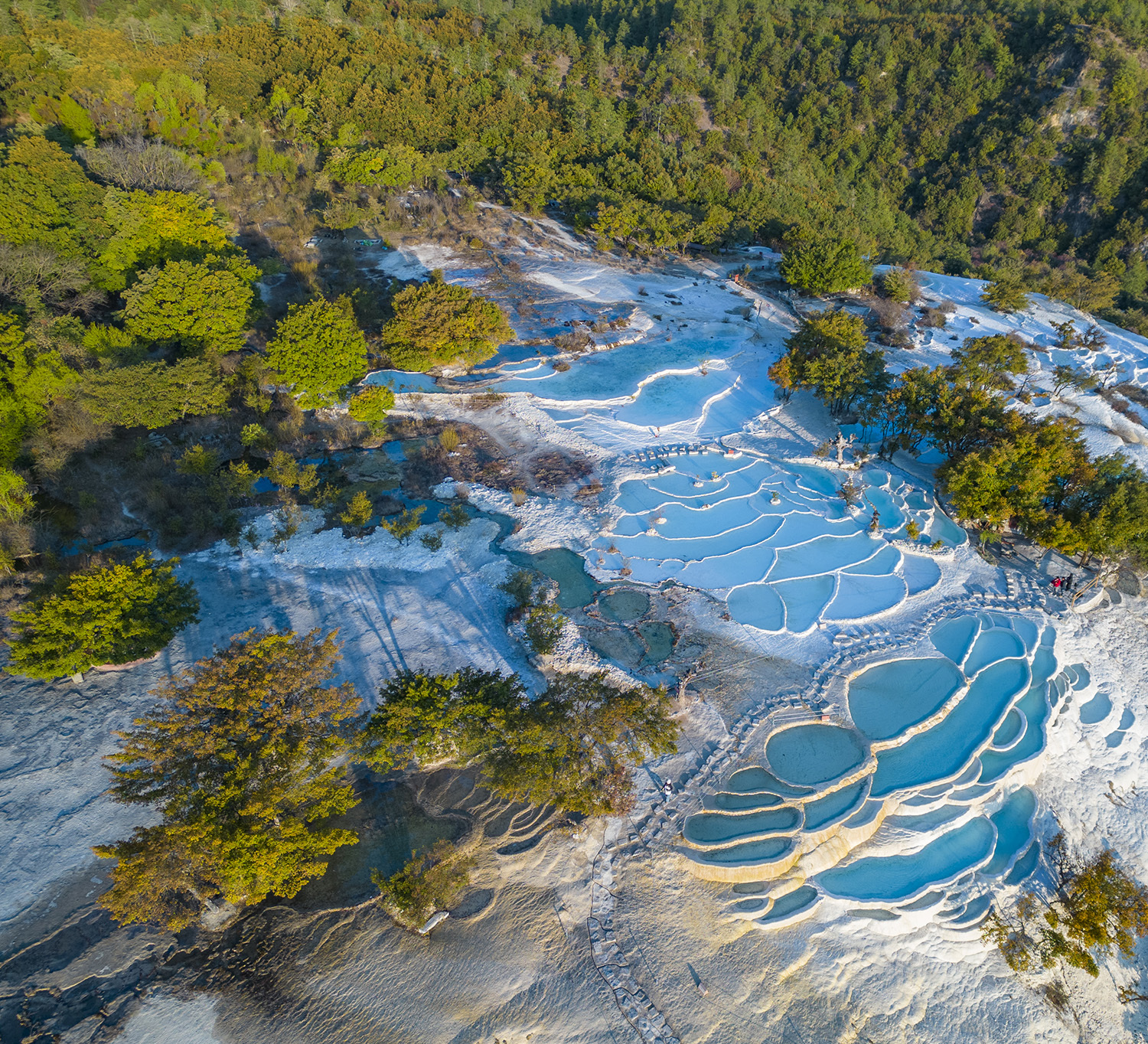
Introduction To Baishuitai Scenic Area
Baishuitai is located in Baidi Village, Sanba Township, Shangri-La City, Diqing Tibetan Autonomous Prefecture, Yunnan Province, with an altitude of 2380 meters. It is the largest cold spring type freshwater carbonate spring and platform in China. The ground is covered by the calcium carbonate decomposed from the spring to form a variety of lava landforms. The mantle is in the shape of terraces scattered high and low, which is called "immortal heritage field". In Naxi, it is called "Bapanzhao", which means the spring and China platform that changes and grows year by year. The history of the formation of the spring platform is about 20-300000 years, and the thickness of the platform is 214 meters.
Altitude
Platform thickness
History has about.
Attractions show
The Upper Tiger Jump is the narrowest section of the entire canyon, with a river width of only about 20 meters. In the middle of the river stands a giant rock, about 13 meters high. It is said that a fierce tiger once jumped to the opposite bank using this rock, hence the name Tiger Jump Stone, and the canyon is also named after it. This giant rock splits the rushing water into two, with waves crashing thunderously, the water and rocks colliding like a roaring tiger, deafening and powerful; bursts of water mist spray onto the face, allowing one to feel the coolness of the water and the vitality of life.
Here, the river is lined with rocky reefs, and the river drops more than a hundred meters within a distance of less than 5 kilometers. The Jinsha River is like a dragon breaking through a narrow pass, rushing forward, with waves crashing against the shore, and muddy waves surging, forming 18 dangerous rapids, famously known as "Stars in the Sky." The rock walls on both sides are like they were cut with a knife or axe, with steep cliffs surrounding them. The poet Sun Ranweng once wrote: "The axe leaves no trace when splitting the barbarian city, and the plow ox flows towards beauty. Every day a trench is made in the line, and the two mountains squeeze the stone as a gate."
The Jinsha River has become much gentler in the lower Hujump section, and the thrilling aspects of the canyon have gradually disappeared, with less danger and more elegance and openness. The view is broad, and all that the eyes can see are fertile fields and winding paths, with the mighty river flowing forward freely. Here, one can appreciate the graceful dance of the Jinsha River girl, the twists and turns of her journey, and the joy of breaking through the stone gate; one can also gaze at the beauty of Haba Snow Mountain and Yulong Snow Mountain.
The goddess manifests her spirit
At the foot of the White Water Terrace, there is a natural statue, pure white like jade, resembling a pregnant woman. It is a place where local people worship the fertility goddess and newlyweds pray for children. Here, there are often devotees and newly married couples who come to burn incense and bow down. The local people regard it as the "goddess of fertility." It is said that men and women who are eager to have children or are infertile will have their wishes fulfilled as long as they worship here.
After the Bai Shui Tai divine spring water flows out, it gathers on the platform to form colorful pools of various sizes. Legend has it that this is the "Shu" (natural deity) bathing pool, called "Shu Ming Gu Chi Gu" in Naxi language.
The crescent-shaped spring pool, also known as the colorful pool, is another micro-landform formed by the accumulation of travertine. It is the most wonderful and aesthetically pleasing terrain in the travertine accumulation landform of Baishui Terrace. The heights of the spring pools differ by 10 to 15 centimeters, stacked layer upon layer from top to bottom, resembling a crescent moon and shaped like terraced fields. The reason why Baishui Terrace is known as the "fields left by immortals" is precisely because of the spring pools.
Blog
Quick Navigation
